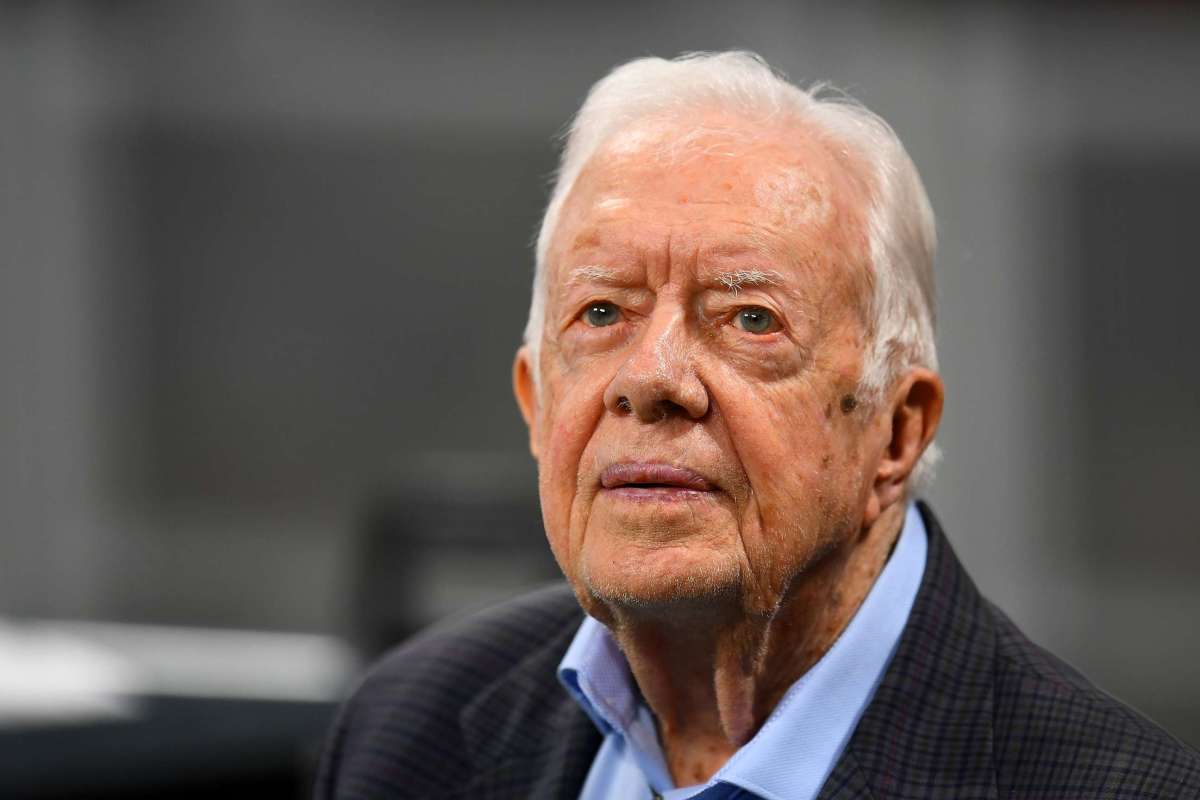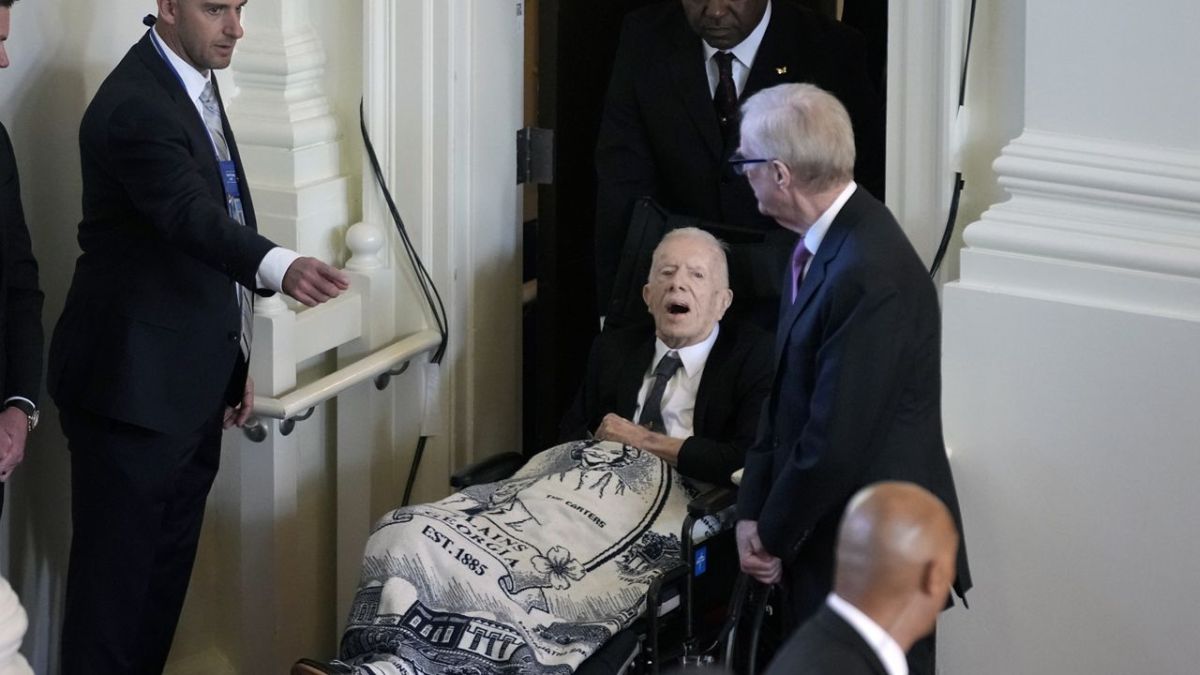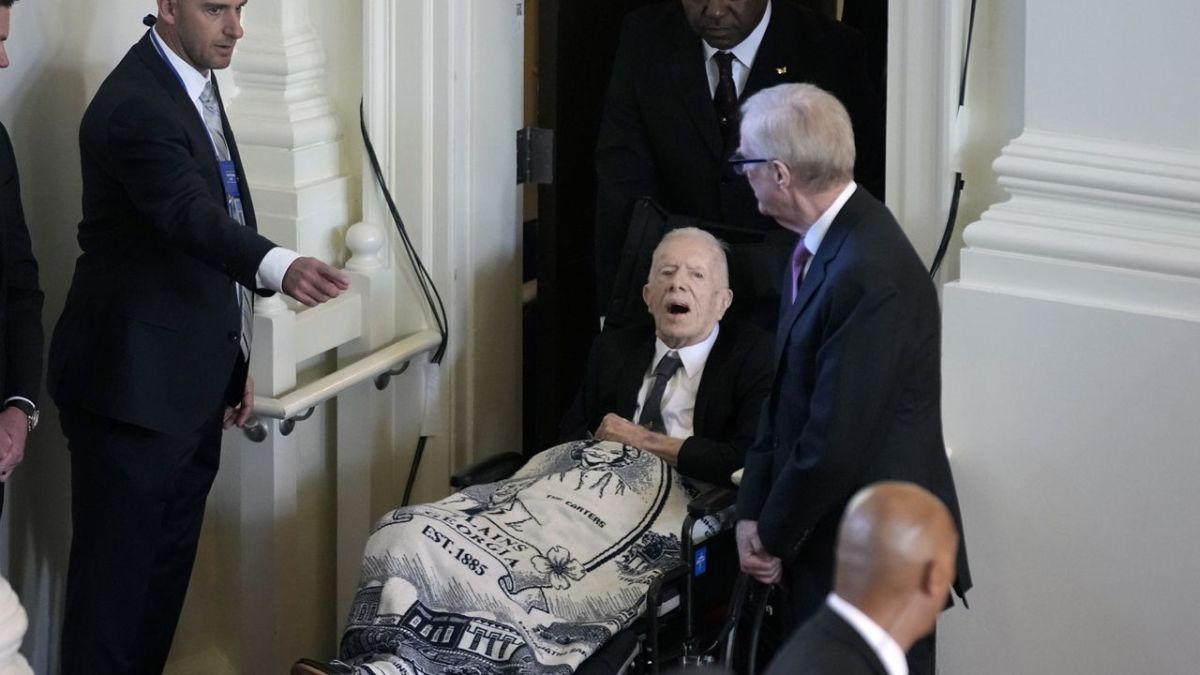U.S. stock markets close to honor former President Jimmy Carter. This unusual market response to the passing of a former president warrants a closer look. We’ll explore the immediate market reaction, comparing it to responses following the deaths of other presidents, and analyze the potential for short-term volatility. Beyond the immediate impact, we’ll delve into the longer-term economic effects of President Carter’s policies on the U.S.
stock market, comparing his era to our current economic climate.
This examination will also consider the political context surrounding the announcement and how it influenced investor sentiment. We’ll draw parallels to historical events that caused similar market reactions, exploring how historical precedent might predict future trends. Finally, we’ll pinpoint specific sectors of the market potentially affected and explain the reasoning behind those impacts.
Market Reactions to President Carter’s Passing and Subsequent Economic Impacts

The passing of former President Jimmy Carter prompted a brief pause in the US stock markets, a respectful gesture reflecting the nation’s mourning. However, the immediate market reaction was relatively muted compared to some other historical events. This article delves into the market’s response, analyzes the economic legacy of President Carter’s administration, and explores the interplay between political context and investor sentiment.
Immediate Market Response
Upon the announcement of President Carter’s death, trading on the US stock exchanges briefly halted as a mark of respect. While there was an initial dip in some indices, the overall market reaction was subdued. This contrasts with the more significant and prolonged reactions observed following the deaths of other prominent figures, suggesting that the current economic and political climate played a role in shaping investor response.
Comparison to Reactions to Other Presidential Deaths

Comparing the market’s response to President Carter’s passing with reactions to the deaths of other former presidents reveals varied outcomes. The death of President Kennedy, for instance, resulted in a more pronounced and sustained market downturn, reflecting the shock and uncertainty of the time. Conversely, some presidential deaths have had a minimal impact on short-term market trends. The differences underscore the complex interplay between national mourning, economic conditions, and investor sentiment.
Short-Term Market Volatility Analysis
While the immediate market reaction was relatively calm, short-term volatility is expected in the days following the announcement. News cycles and ongoing political discussions will influence investor behavior. However, considering the overall stability of the US economy, any significant and prolonged market fluctuations are unlikely, unless unforeseen economic developments occur.
Timeline of Market Fluctuations, U.S. stock markets close to honor former President Jimmy Carter
A detailed timeline tracking significant market fluctuations following the announcement is essential for a comprehensive analysis. This would include tracking the opening and closing values of major indices (Dow Jones, S&P 500, Nasdaq) for the days immediately following the announcement, noting any significant deviations from expected trends. Such an analysis would need to account for other simultaneous news events that could influence market movements.
Economic Impact of President Carter’s Presidency
President Carter’s economic policies significantly shaped the US economy and, consequently, the stock market. Understanding these policies and their long-term effects is crucial for evaluating their overall impact.
Key Economic Policies and Long-Term Effects
Carter’s presidency was marked by challenges including the energy crisis and high inflation. Key policies included deregulation in some sectors, efforts to control inflation through monetary policy, and a focus on energy independence. The long-term effects on the stock market were mixed, with some sectors benefiting from deregulation while others faced challenges due to economic uncertainty. The stagflation of the late 1970s, a period of slow economic growth and high inflation, created a volatile environment for investors.
Okay, so the U.S. stock markets observed a moment of silence for President Carter, a really fitting tribute. It’s a stark contrast to the news coming out of Manchester, where, check this out: Manchester Airport runways reopen, but passengers warned of further delays. Back to the markets, though – it was a quiet day overall, reflecting the somber mood.
Economic Climate Comparison: Carter Era vs. Present
Comparing the economic climate during Carter’s presidency to the current situation reveals stark differences. While Carter faced stagflation, the current economy exhibits lower inflation but also concerns about potential recession. The overall level of economic uncertainty differed significantly between these two periods, influencing investor behavior and market performance.
Okay, so the U.S. stock markets paused to remember President Carter – a pretty big deal. It got me thinking about growth and funding, and how sometimes, even massive markets need a boost. For example, check out this article about the Adanola founder considering a stake sale to fund growth: Adanola founder considers stake sale to fund growth.
It’s a reminder that even amidst moments of reflection, the pursuit of expansion continues, much like the markets themselves will eventually reopen after honoring President Carter.
Economic Indicators Comparison Table

| Indicator | Carter Era (Average) | Current (Recent Data) | Difference/Notes |
|---|---|---|---|
| Inflation Rate | 7.9% (1977-1981) | [Insert Current Inflation Data] | [Comparative Analysis] |
| Unemployment Rate | 6.2% (1977-1981) | [Insert Current Unemployment Data] | [Comparative Analysis] |
| GDP Growth Rate | 3.2% (1977-1981) | [Insert Current GDP Growth Data] | [Comparative Analysis] |
| Interest Rates | [Insert Average Interest Rates during Carter’s Presidency] | [Insert Current Interest Rates] | [Comparative Analysis] |
Political Context and Market Sentiment: U.S. Stock Markets Close To Honor Former President Jimmy Carter
The political climate surrounding President Carter’s passing is characterized by a sense of national unity and reflection. Understanding this context helps in analyzing its influence on investor sentiment and potential market shifts.
Political Climate and Investor Sentiment
The announcement of President Carter’s death created a period of national reflection, potentially fostering a more cautious and less volatile market environment in the short term. However, the longer-term impact will depend on the unfolding political landscape and any policy shifts related to the upcoming elections.
Hey, so the U.S. stock markets paused trading to honor President Carter, a really significant moment. It got me thinking about the global impact of his passing, and I found this article detailing his funeral: Funérailles de Jimmy Carter | Cinq présidents exposent une image which shows how many were affected. The market closure underlines the respect he commanded, both domestically and internationally.
Potential Shifts in Investor Confidence
While the immediate impact on investor confidence is likely to be minimal, the longer-term effects are less predictable. The political climate following the passing of a respected figure might influence investor confidence based on the ensuing political discussions and policy debates.
Political Ramifications and Market Behavior
- Increased focus on bipartisanship might lead to greater market stability.
- Political uncertainty could lead to short-term market volatility.
- Potential policy shifts related to energy or other sectors could influence specific market segments.
- The national mood of reflection might lead to a temporary reduction in risk appetite among investors.
Final Summary

The passing of former President Jimmy Carter prompted a unique response from U.S. stock markets, a testament to his enduring legacy and the impact of significant historical events on investor sentiment. By analyzing the immediate market reaction, the long-term economic consequences of his presidency, and the prevailing political climate, we gain a comprehensive understanding of the complex interplay between politics, economics, and market behavior.
Understanding these historical parallels can help us better anticipate future market trends in response to similar events.
Questions and Answers
How unusual was the market’s reaction to President Carter’s death compared to other former presidents?
The response varied; some presidential deaths caused more pronounced market fluctuations than others, depending on various factors like the economic climate and the president’s legacy.
What specific sectors are expected to be most affected by this event?
It’s difficult to predict with certainty. However, sectors sensitive to geopolitical uncertainty or those heavily influenced by government regulation might experience some impact.
Will this market closure have a lasting impact on long-term investment strategies?
Probably not significantly. While the event is noteworthy, long-term investment strategies generally remain unaffected by short-term market fluctuations caused by such events.
